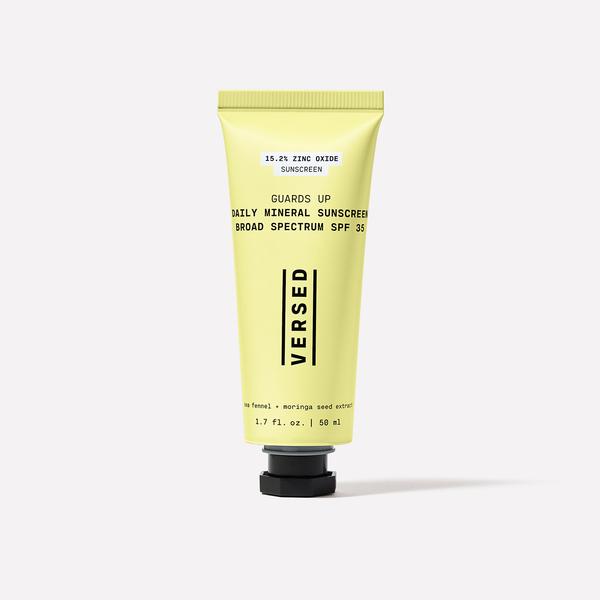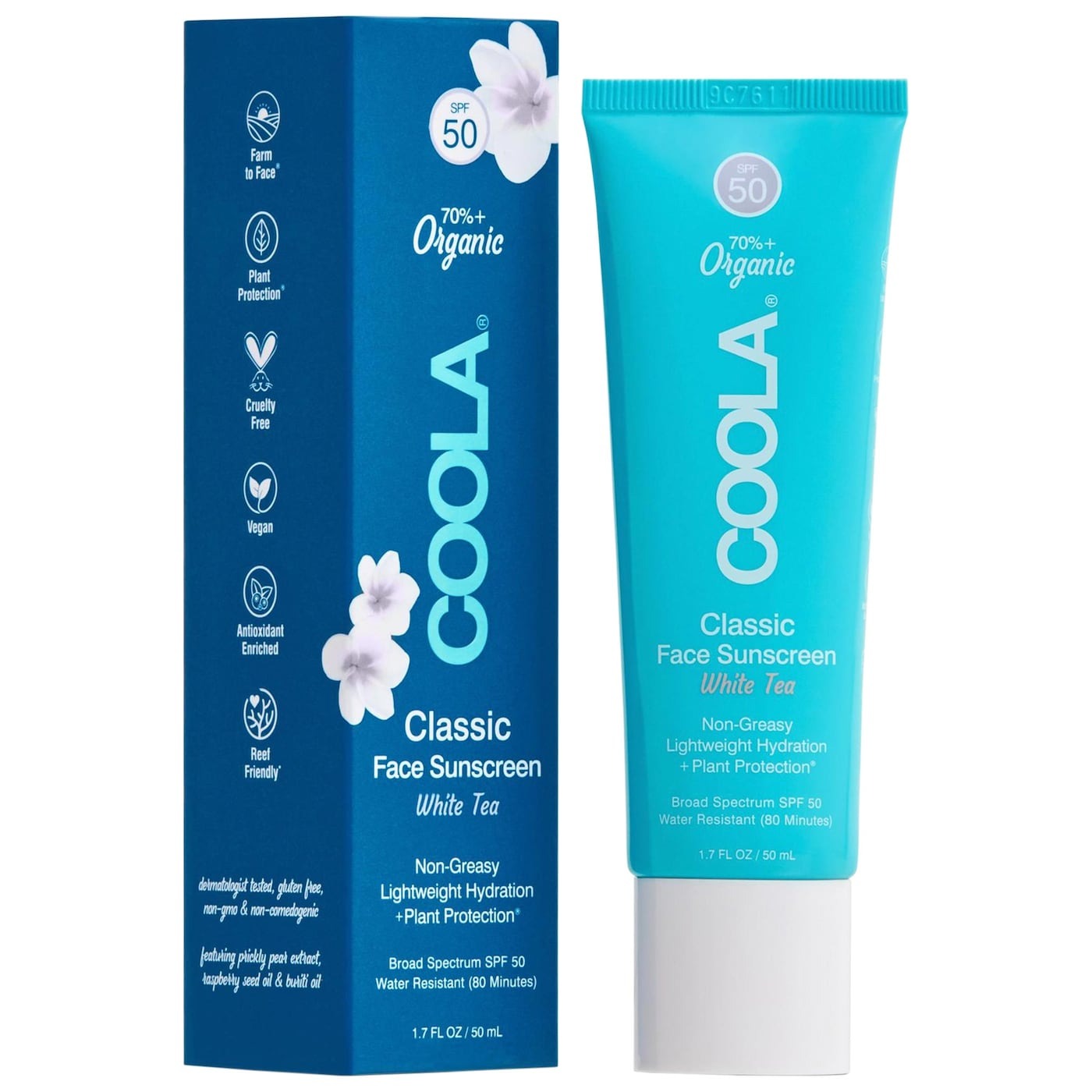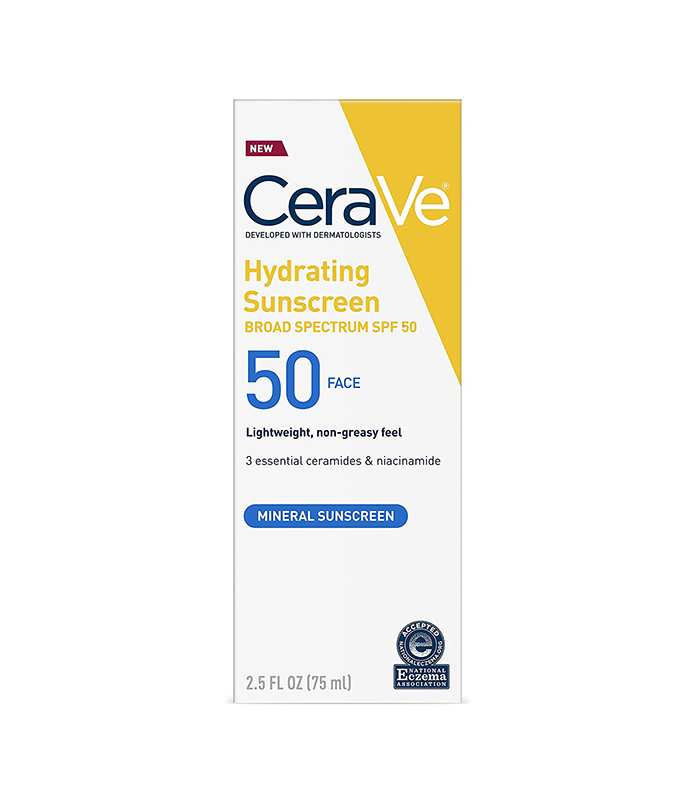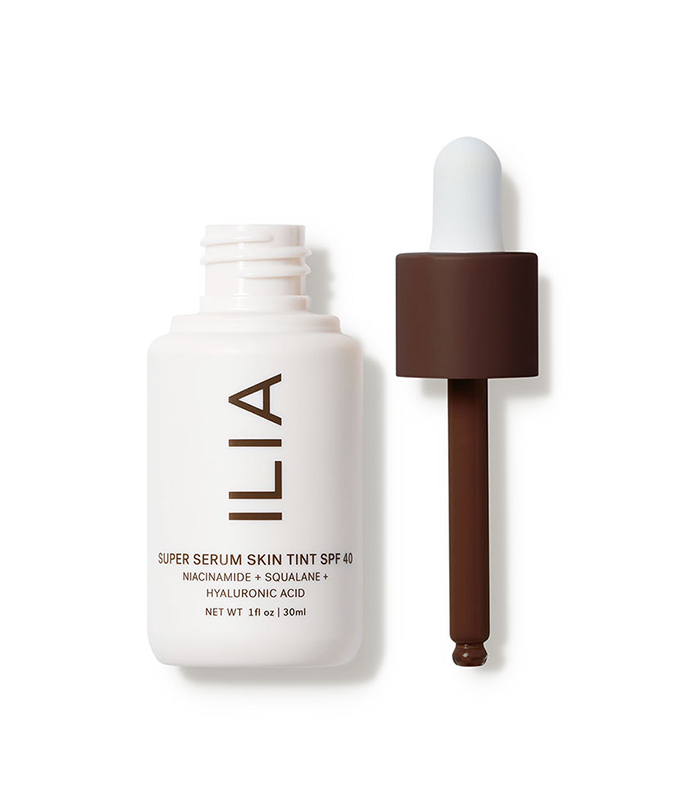This Sunscreen Mistake Is Easy to Make—Here's How to Fix It
By now, we know that wearing sunscreen every day is so important. Protecting your skin against damaging UV rays is crucial to reducing your risk of developing skin cancer. Plus, it will stop your skin from aging faster. Yep, sun exposure can really speed up the process. According to the American Academy of Dermatology, sun damage over time can lead to changes like wrinkles, age spots, loose skin, spider veins, and a blotchy or ruddy complexion.
And while there are a lot of variables that come with choosing a sunscreen—chemical or mineral, SPF levels, different types of formulas—the general rule of thumb is pretty easy to remember. "Making sure that your sunscreen product is broad-spectrum and of an SPF of at least 30 is the most important," says Joel Cohen, MD, a board-certified dermatologist and director of AboutSkin Dermatology in Denver, Colorado.

So we're all in agreement that sunscreen is a crucial skincare step. But we're also all human, and sometimes, you might forget to apply it. Or you might skip over some body parts when you're in a rush. I like to consider myself pretty diligent about applying sunscreen every day, but I spent a day by the pool last summer, and although I thought I had gotten sunscreen on every nook and cranny of my body, I found my shoulders were sunburned at the end of the day. It happened months ago, and I'm still feeling guilty about it.
One mistake that can cause us to forget? It might be you don't have sunscreen you're comfortable wearing, that's easy to use, or that works with your skin. Having sunscreen you actually like wearing makes a big difference, but it sometimes comes down to personal preference. "Many people find it easier to use a product that contains their daily moisturizer as well, as that removes one additional step from their morning regimen," Cohen says. "Conversely, many people with oily skin want a product that does not add emollience or moisture to their skin. Cosmetic elegance is critically important, as patients will not use their SPF every morning if it is thick or uncomfortable on the skin."
This can be especially true if you have a skin condition that might make things irritated or uncomfortable, like eczema, rosacea, or even acne-prone skin. If you have a sunscreen product that annoys your skin even more, you might dread wearing it.
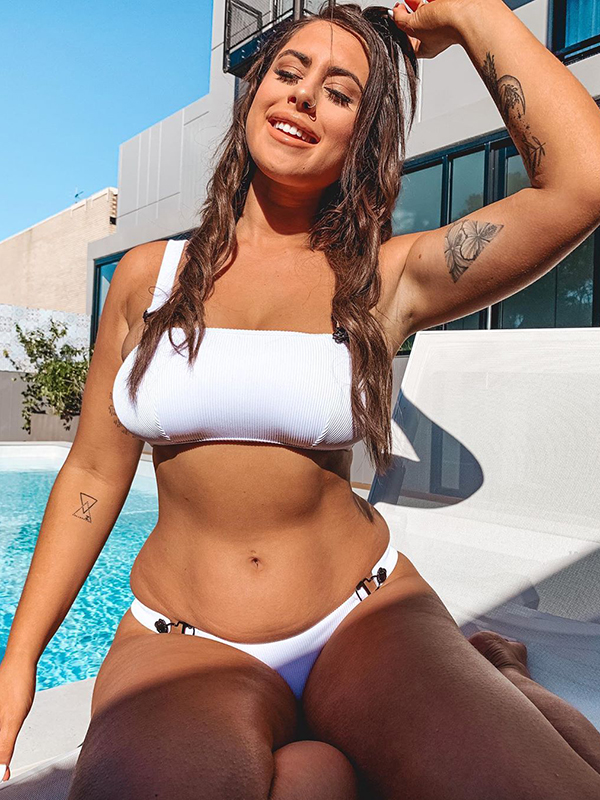
Tips for Choosing a Sunscreen If You Have Rosacea
When it comes to rosacea, Cohen says formula type doesn't really affect the outcome, but there are some things to keep in mind when you're choosing a sunscreen, which he outlined for us below.
Apply Every Morning
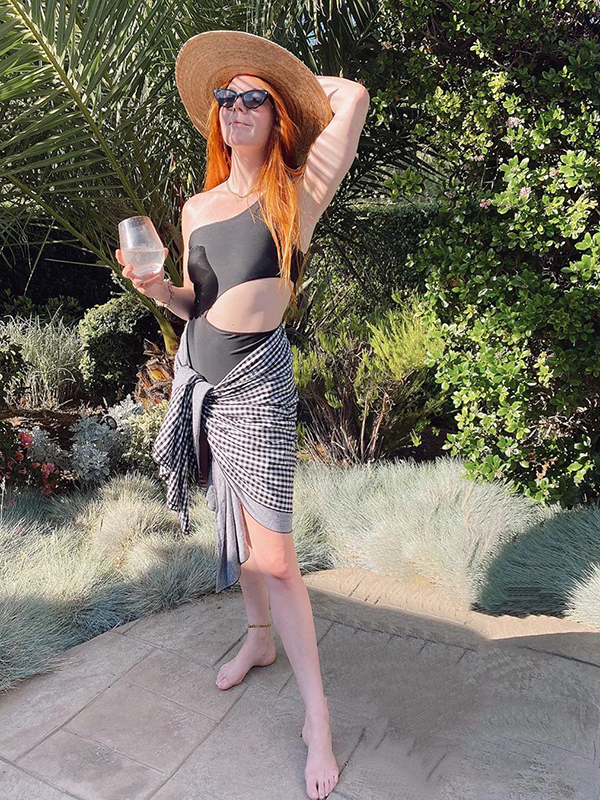
While this guideline is for everyone, it's especially important for people with rosacea. "Since inflammation is a cause and an outcome in rosacea, it is really important that the application of sunscreen every morning becomes a habit," Cohen says. "Reducing the inflammation caused by UV exposure can really help to reduce flare-ups in rosacea patients. And remember to reapply every two hours or more frequently if sweating, swimming, or toweling off."
Avoid Fragrances
"It is important to avoid products with unnecessary synthetic fragrances as these can cause irritation," Cohen advises. The same goes for dyes, too.
Look for Sunscreens With Antioxidants
Cohen says added antioxidants might help reduce inflammation and damage caused by UV radiation.
Noncomedogenic Sunscreens Help Too
These are beneficial because they don't clog pores, Cohen says.
Try a Tinted SPF
"Using a product that has a natural tint can be nice to minimize any facial redness you may be experiencing," Cohen suggests.
Stay Away From Oils
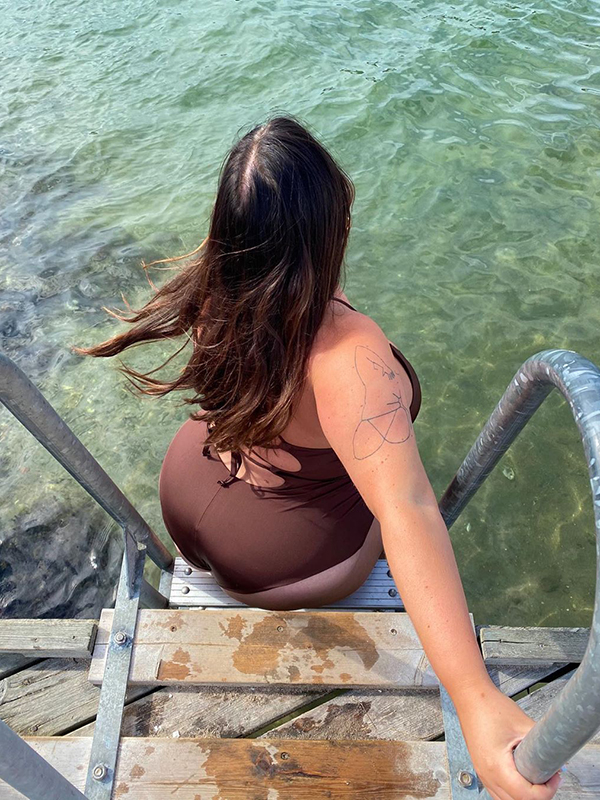
Cohen says some sunscreens use oils to cover up the sunscreen smell. He advises against stocking up on those, as they can clog pores.
More Sunscreens for Rosacea
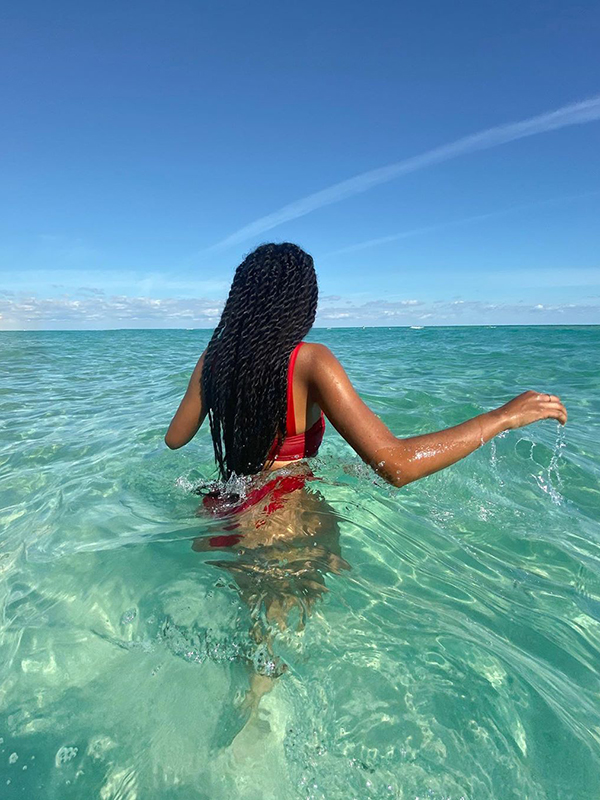
Need more sunscreen options? Take a look at some of Cohen's and our picks:
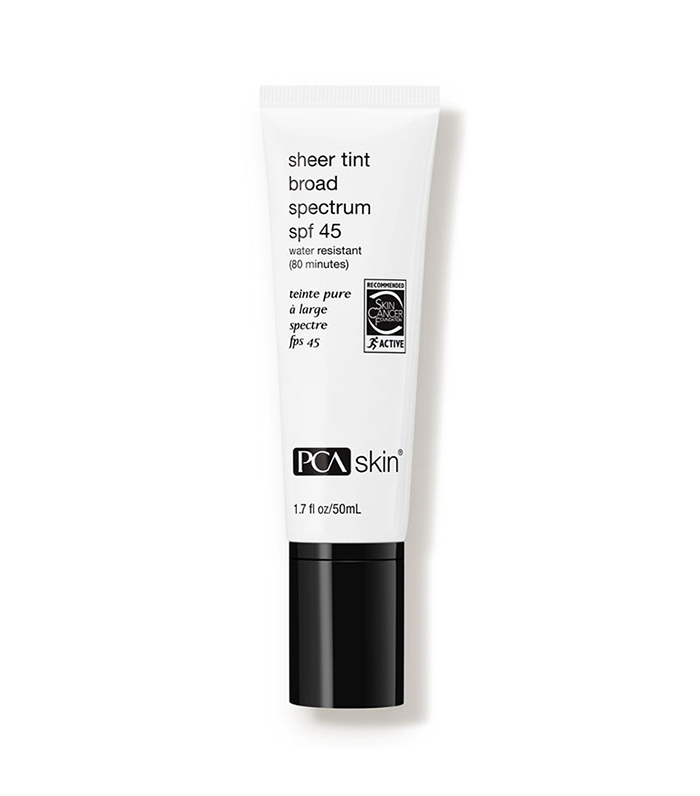
Cohen recommends this tinted sunscreen to help cover up redness. It's noncomedogenic and water-resistant and contains coenzyme Q10 for antioxidant power. Titanium dioxide and zinc oxide provide broad-spectrum sun protection.
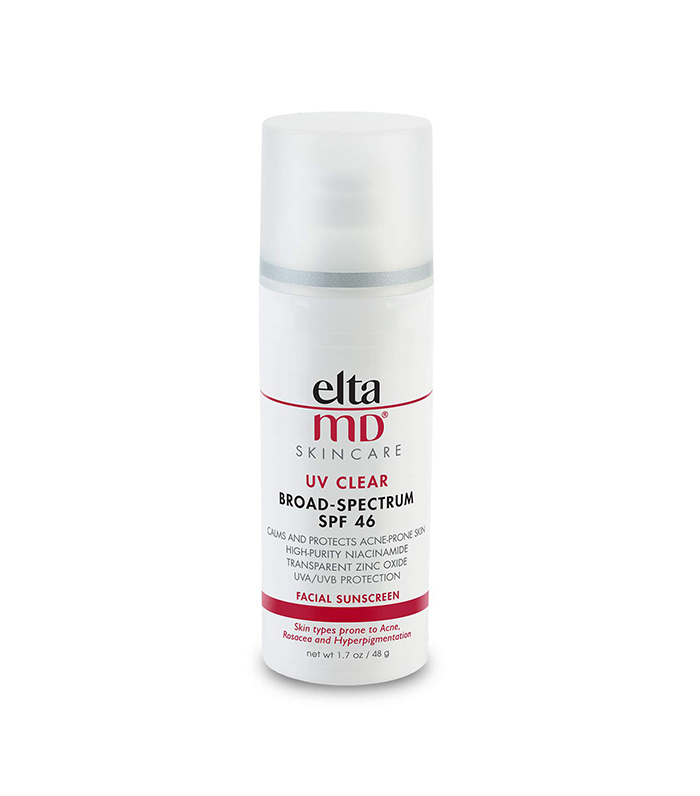
Another recommendation from Cohen is EltaMD UV Clear Broad-Spectrum SPF 46, which is oil-free and fragrance-free. Its ingredients include sodium hyaluronate to help moisturize and lactic acid to clear pores.
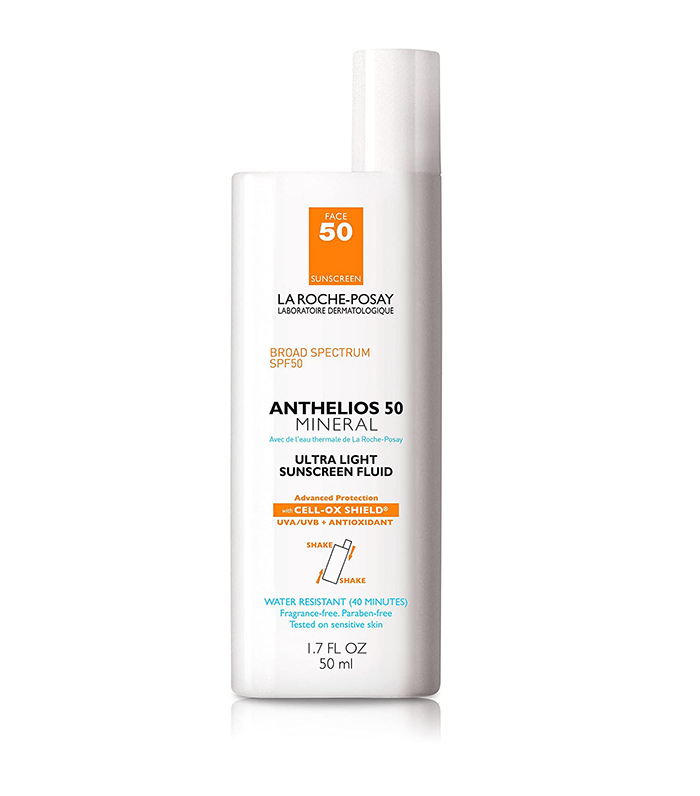
This mineral sunscreen is fast-absorbing and good for sensitive skin. It also contains antioxidants for free-radical protection.
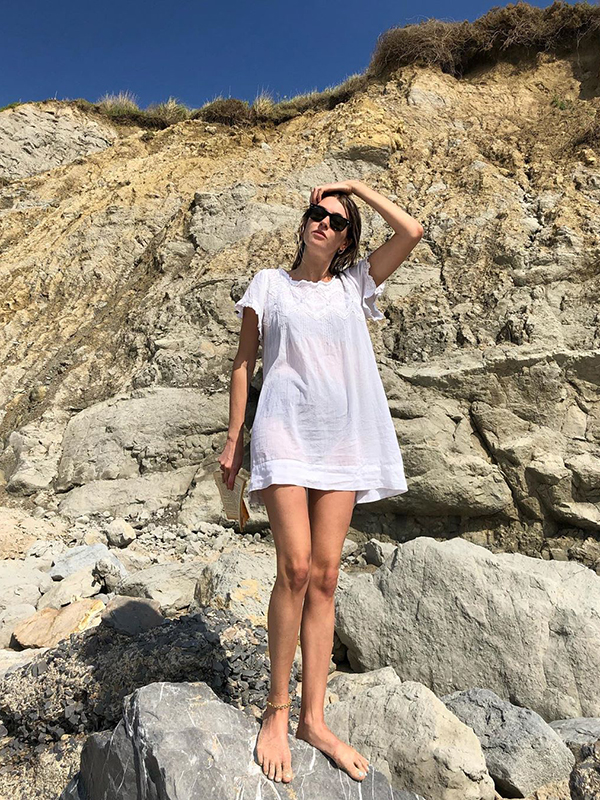
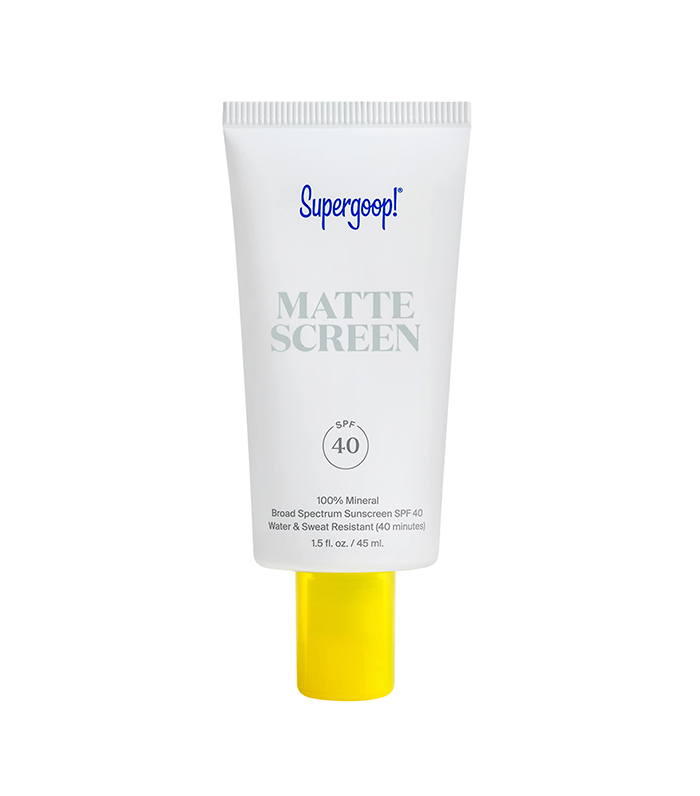
Supergoop!'s Mattescreen is great because it's also a primer that works to brighten and improve uneven skin tone, which can help with the redness from rosacea. It also contains butterfly-bush extract, which helps protect against blue light from our screens.
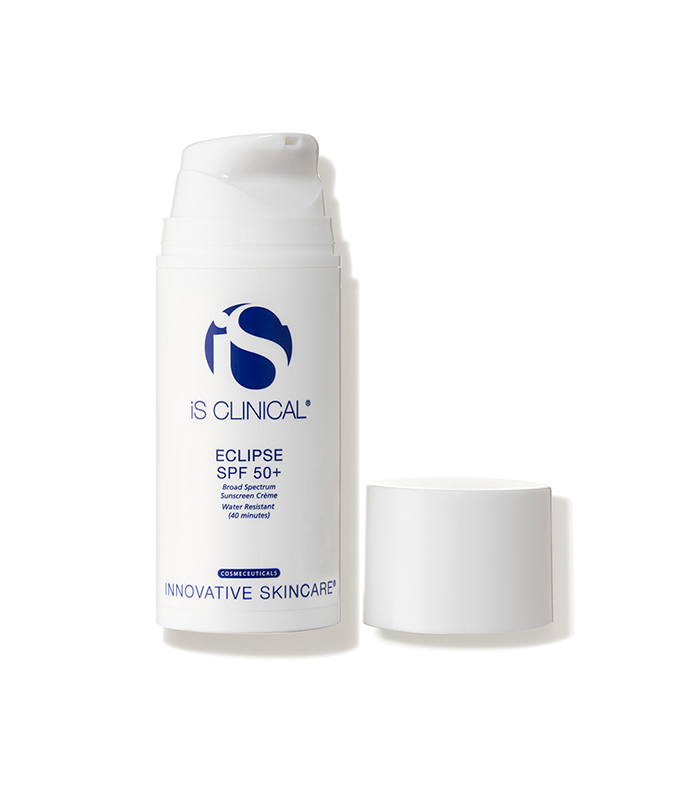
The antioxidant vitamin E in this sunscreen shields against free radicals while keeping the skin hydrated. The titanium dioxide and zinc oxide formula absorbs quickly into the skin and leaves a matte finish.
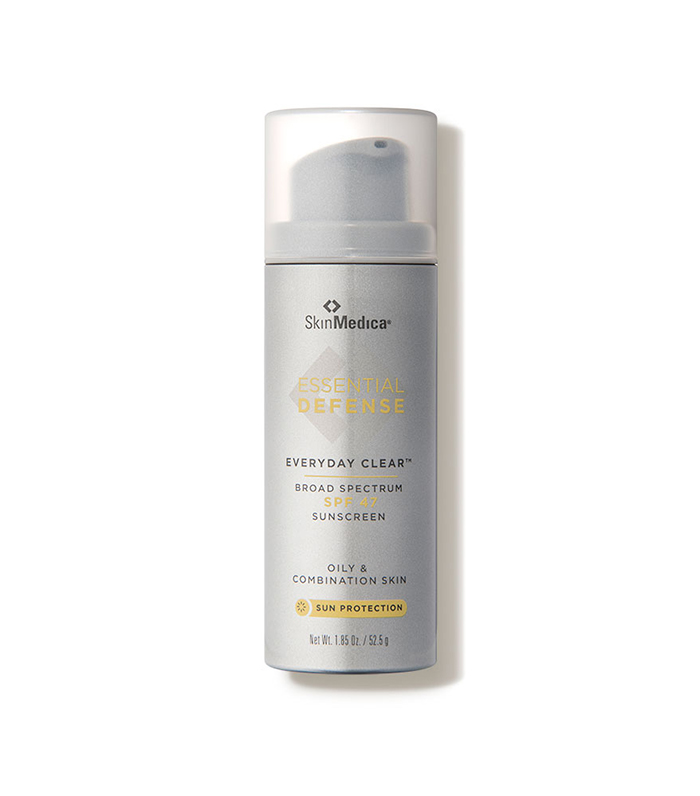
SkinMedica's sunscreen is specially made for oily and combination skin types. The sheer formula works to improve the skin's texture and tone. Other soothing and hydrating ingredients include hyaluronic acid, vitamin E, and green tea.
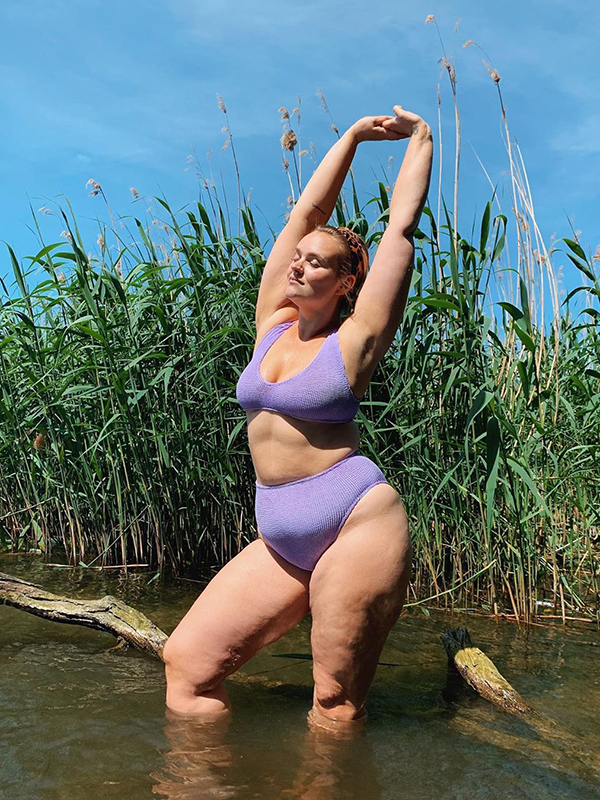
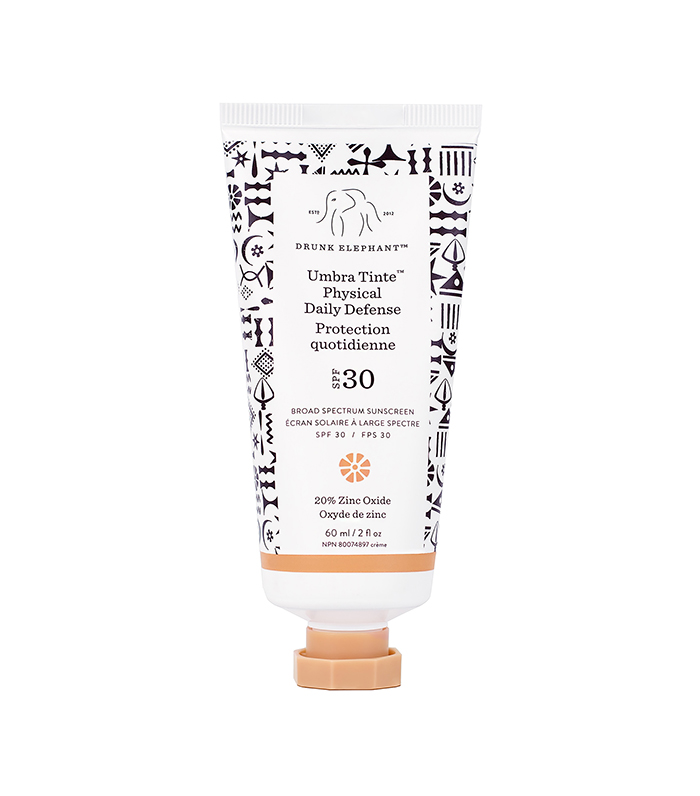
Here's another tinted option to help disguise redness. It contains 20% zinc oxide, antioxidant-packed algae extract, and sunflower-sprout extract.
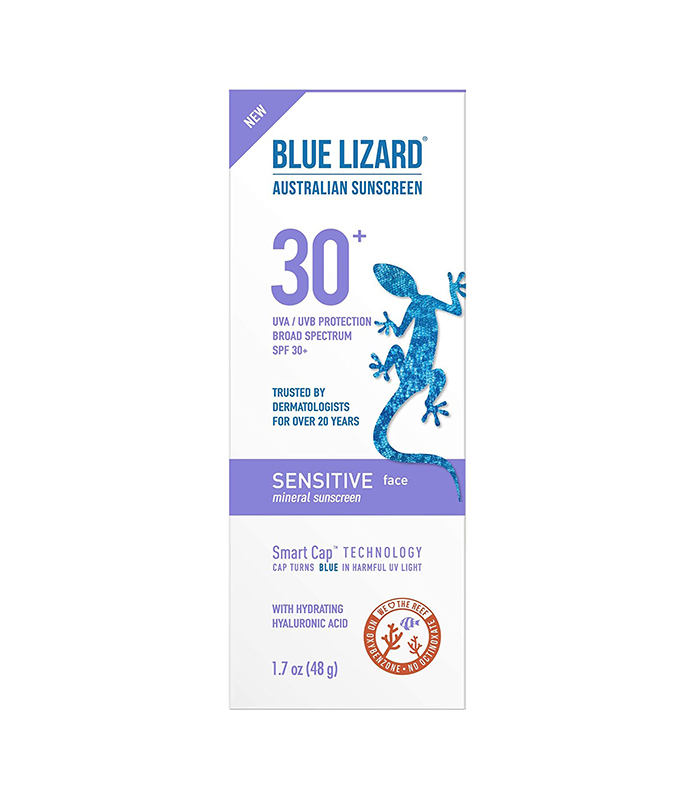
Blue Lizard's facial sunscreen checks pretty much all the boxes when it comes to rosacea-friendly formulas. This one is oil-free, noncomedogenic, antioxidant-rich, and fragrance-free.
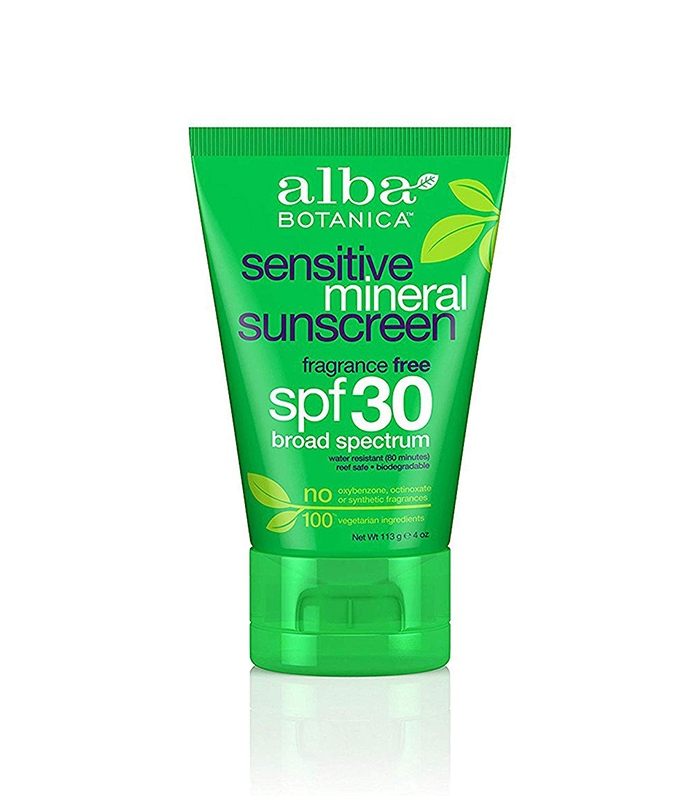
Non-greasy and fragrance-free, this sunscreen is an affordable option at just $5. It also contains soothing botanicals like chamomile and aloe-leaf juice. The reef-friendly formula is water-resistant for up to 80 minutes.
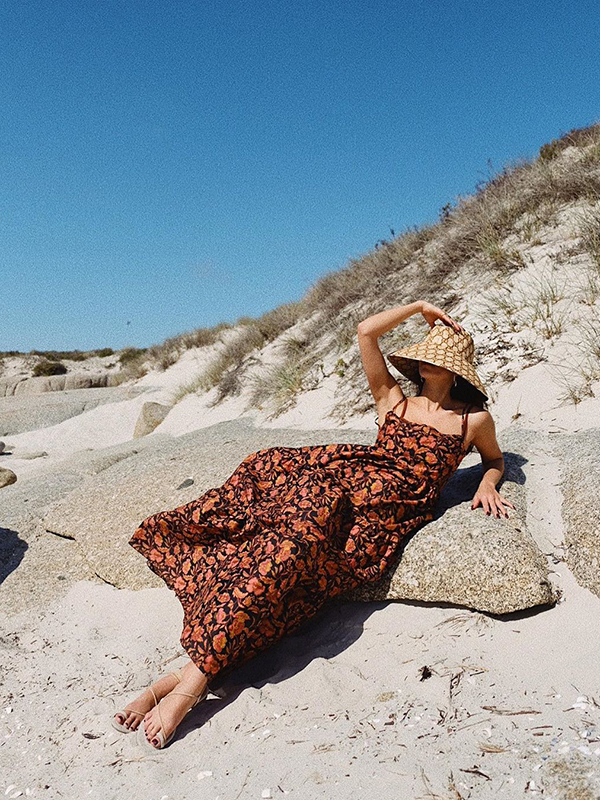
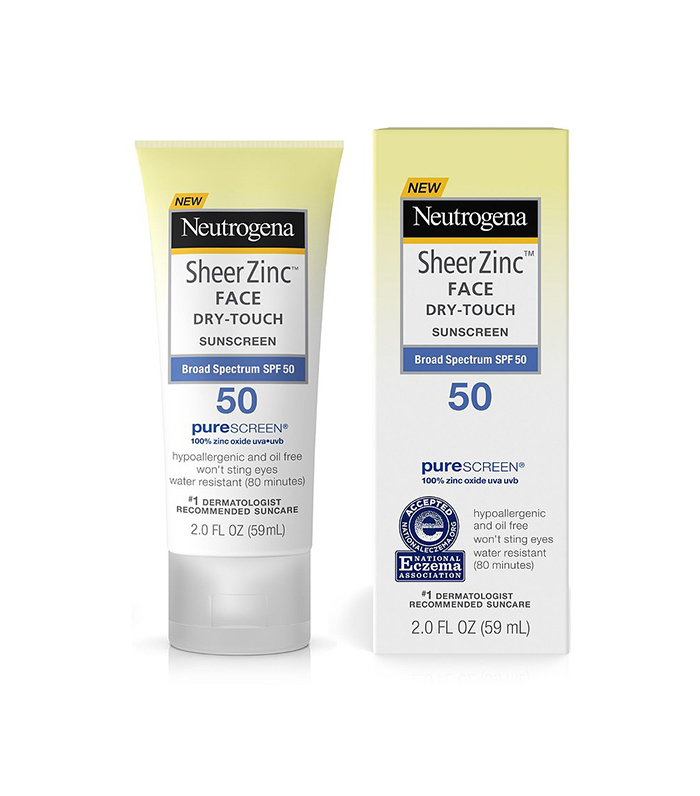
Neutrogena's mineral sunscreen is gentle on skin and free of fragrance, parabens, phthalates, dyes, and irritating chemicals. It's also noncomedogenic and oil-free and contains antioxidants. The sheer formula is optimal for rosacea.
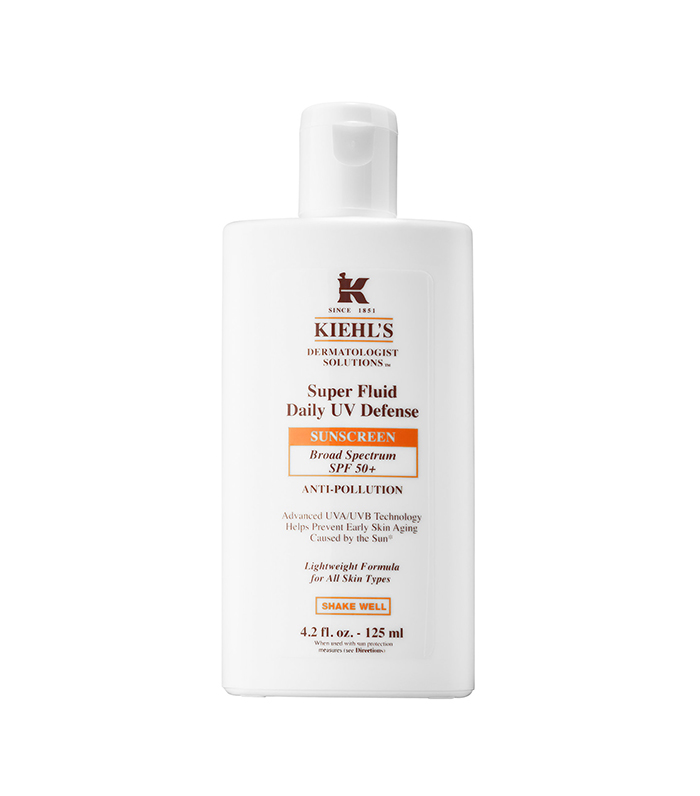
The antioxidant vitamin E in this sunscreen works to minimize the look of pores and protect the skin. The noncomedogenic formula is lightweight and fast-absorbing, too.
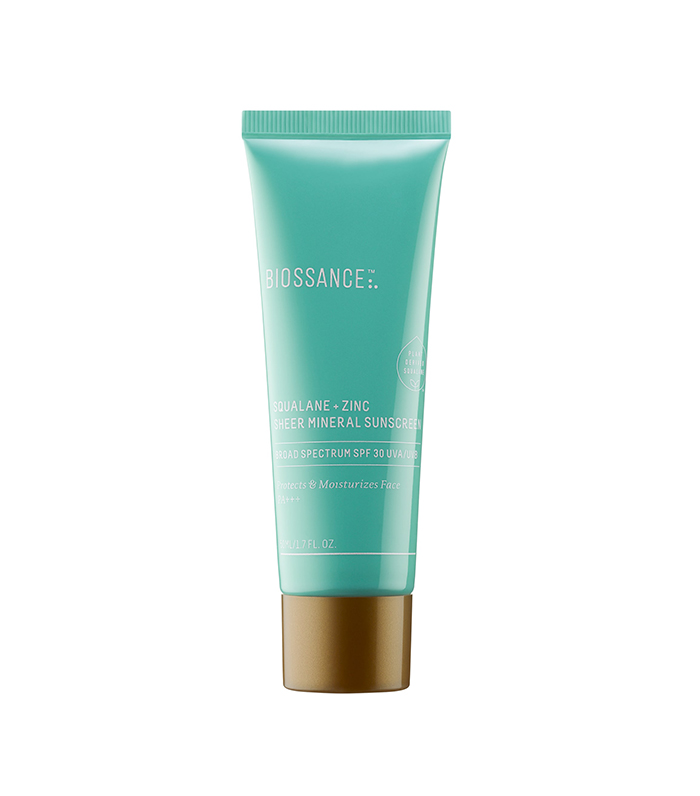
Biossance's sunscreen is formulated with water lily, which works to calm and soothe skin—helpful for any redness. The zinc oxide sunscreen is sheer and hydrating thanks to squalane.
This story was originally published at an earlier date and has since been updated.
Sarah is lifestyle writer and editor with over 10 years of experience covering health and wellness, interior design, food, beauty, and tech. Born and raised in Los Angeles, she attended New York University and lived in New York for 12 years before returning to L.A. in 2019. In addition to her work at Who What Wear, she held editor roles at Apartment Therapy, Real Simple, House Beautiful, Elle Decor, and The Bump (sister site of The Knot). She has a passion for health and wellness, but she especially loves writing about mental health. Her self-care routine consists of five things: a good workout, “me” time on the regular, an intriguing book/podcast/playlist to unwind after a long day, naps, and decorating her home.
